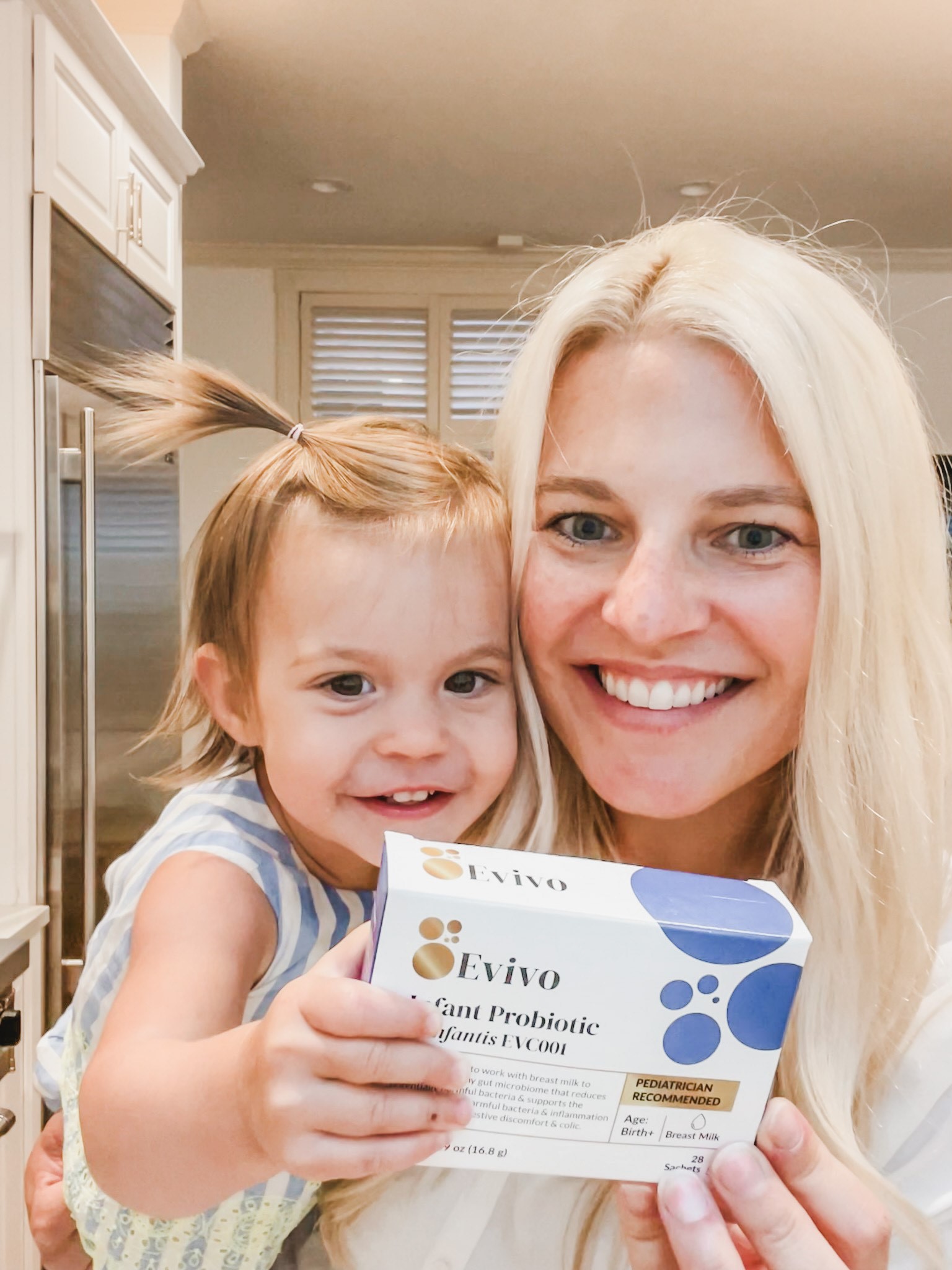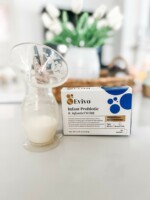Can Improving Gut Health Help with Colic Symptoms?

By: Lauren McCarthy, BSN, RN, CBC
Bumble Baby Chicago
One of the most common fears we hear from parents is: “Will my baby suffer from colic?” Colic occurs in young infants and can be particularly distressing to parents, as the extreme crying typically comes with no warning and the baby is extremely hard to console. As infant specialists, we often help families whose babies suffer from colic.
Let’s explore what colic is, how it impacts caregivers and what you can do to address the symptoms.
What causes babies to experience colic?
The exact cause of colic is unknown, but newer research shows that an imbalance of healthy bacteria in a baby’s gut, along with a digestive system that is not fully developed, can be linked, and contribute to colic symptoms and severity. That may explain why we often see colic symptoms brought on by or worsen due to feeding schedules and habits. More on that ahead.
Colic effects on average 1 out of 4 babies in the U.S. and is defined as excessive crying that lasts at least 3 hours per day for more than 3 days out of the week in an infant under the age of 3 months. Colic symptoms typically peak around the age of 6 weeks and begin to significantly improve by 3-4 months of age.
A colicky baby can be incredibly stressful for parents. This type of crying is not related to a common infant need such as hunger or being tired. The crying seems to occur for no reason, often in the evening, and can be accompanied by stiff arms and legs, arched back and other body tension.
The impact of colic on caregivers
Being a parent or caregiver of a newborn is stressful, but colic can add a whole new dimension to adjusting to life with a new baby. The parents we help who have babies suffering from colic struggle to keep their baby on a schedule. This in turn leads to feeding difficulties and lack of sleep for both babies and parents. It can be a vicious cycle of challenges that all seem to be related, which is obviously very frustrating and exhausting for parents to deal with for days on end.
As infant specialists, we have seen repeatedly with our clients that a colicky baby struggles with feeding and/or sleeping. Parents who are continually sleep deprived have a tough time bonding with their baby and are desperate for a solution. It can transform what should be a magical time into a nightmare.
How does Evivo probiotic help colicky babies?

There are many factors that may contribute to colic symptoms. Since we know that gut health is essential for babies and plays a vital role in protecting their immune system, we recommend Evivo to help our clients get back on track.
With 80 percent of the immune system residing in the gut, taking care of your newborns’ gut health is crucial! If your baby’s gut has an imbalanced gut, colic symptoms like excessive crying, gas, and bloating can occur. A fantastic way to help resolve colic systems is to simply restore the beneficial bacteria in your baby’s gut.
How does Evivo probiotic work?
You’d be surprised but not many probiotics can explain how they work within the body, but Evivo can. Evivo is a baby probiotic that contains a powerful bacterial strain called B. infantis EVC001—a good gut bacteria that supports your baby’s gut microbiome, helps build up their developing immune system and yes, you guessed it, can work magic on your colicky infant’s tummy!
Evivo is a powder that is activated by a small amount of breast milk and backed by significant scientific research. The B. infantis EVC001 contained in Evivo powder colonizes your baby’s gut with good bacteria, which can also lead to better feeding habits, more bonding time with your baby and improved SLEEP!
It couldn’t be easier to begin using Evivo with your baby. The probiotic is individually packaged for daily use and only needs to be mixed with a small amount of breast milk to be effective.
This flavorless powder can easily be given via a syringe, mixed into your baby’s bottle or with their solids. It is a convenient way to boost your baby’s immune system and has been reported by parents to reduce colic, diaper rash, and improve sleep.1
About the Author
Lauren McCarthy, BSN, RN, CBC, Bumblebaby Consultant
Lauren has been a NICU nurse for 8 years + is the mama to three girls under 6. Lauren specializes in bottle consultations (since she also struggled to get her girls to take a bottle!), perinatal + postpartum support, virtual one-to-one consulting and introducing solids. Lauren also offers breastfeeding counseling and in-home CPR. Read more about Lauren here.
Citations
- Frese, Steven A., et al. “Persistence of supplemented Bifidobacterium longum subsp. infantis EVC001 in breastfed infants.” MSphere 2.6 (2017): e00501-17.



